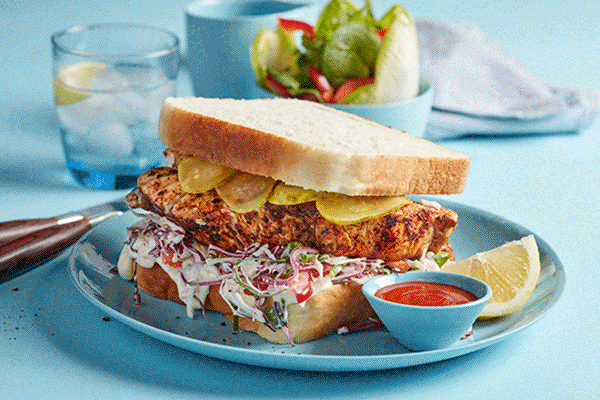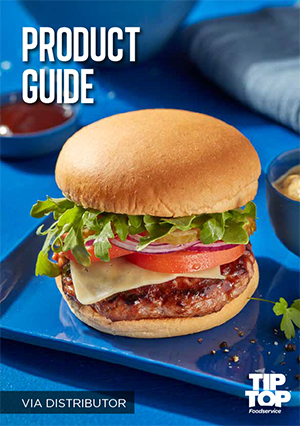Trends, challenges and creative solutions in foodservice

We sat down with Darren O’Brien, Bakery Innovation Manager at Tip Top Foodservice to discuss trends, challenges and creative solutions that he is seeing in the foodservice industry in 2024.

What are the current dietary trends that chefs should be aware of to stay ahead in the industry?
Darren: In the ever-evolving foodservice industry, staying ahead of trends is crucial. Currently, there's a strong emphasis on health-conscious and dietary-specific options. Vegan, gluten-free, and whole grain products are in high demand. There's also a growing interest in artisanal and locally sourced ingredients, with consumers looking for authentic, high-quality offerings. Sustainable packaging and environmentally friendly practices are becoming more significant as well.
How can chefs incorporate these trends into their menus to attract more customers?
Darren: Chefs can capitalise on these trends by diversifying their menus to include a variety of dietary options. For instance, incorporating vegan and gluten-free items can cater to a broader audience. Highlighting these aspects on your menu and in your marketing efforts can attract new customers who are looking for healthier and more sustainable dining options.
Can you share some creative ways to use your products that can help chefs elevate their menus?
Darren: Absolutely. Here are a few ideas that our customers have been having great success with:
Gourmet Garlic Bread: Use Australian Garlic Bread Co. garlic bread as a base for bruschetta or gourmet open-faced sandwiches. Top with heirloom tomatoes, fresh basil, and a drizzle of balsamic reduction for an elegant starter.
Versatile Burger Creations: Our Tip Top Potato Bun, which is vegan, can be used for a variety of burgers beyond the classic beef patty. Try a pulled jackfruit burger, a crispy tofu burger, or even a portobello mushroom burger to offer diverse options that cater to different dietary preferences.
Breakfast Innovations: Incorporate our range of breads into your breakfast menu. Create avocado toast variations using our whole grain breads or use our buns for breakfast sandwiches with unique fillings like smoked salmon and cream cheese or scrambled tofu with spinach and mushrooms.

How can chefs streamline their operations using your products without compromising on quality?
Darren: Tip Top Foodservice products are designed with efficiency in mind. Our quick-to-table garlic breads and burger buns help reduce prep time, allowing chefs to serve more customers without sacrificing quality. They’re pre-sliced and can go straight from the freezer to the oven to the table (for the garlic bread) or just thaw and serve (for the burger buns). These products are made to maintain their taste and texture even with quick preparation, ensuring that your dishes are consistently high-quality. By incorporating our products, chefs can streamline their kitchen operations, reduce wait times, and improve overall service efficiency.
What are some time-saving techniques or products you recommend for busy kitchens?
Darren: Busy kitchens can benefit greatly from products that are both versatile and easy to prepare. Here are a few recommendations:
Pre-Sliced Bread: Using pre-sliced bread saves valuable prep time, allowing chefs to focus on more intricate tasks.
Frozen Products: Frozen products can be a lifesaver, many frozen products are par-baked or ready to flash bake in the oven - providing just-baked quality without the lengthy preparation process. We have a range of these products available to foodservice that save a lot of time.
Multi-Purpose Items: Choosing products that can be used across various menu items reduces the need for multiple different products and simplifying inventory.
What are some common challenges chefs are facing at the moment? How are you seeing venues overcome these?
Darren: One major challenge chefs face today is meeting the diverse dietary needs of customers while maintaining a streamlined operation. Additionally, there's a growing need to improve service times and manage rising food costs. Venues are overcoming these challenges by embracing versatile products that cater to multiple dietary requirements, and by incorporating quick-to-table solutions to improve efficiency. Investing in staff training and focusing on customer feedback also help venues adapt and thrive in a competitive market. By staying flexible and proactive, chefs can turn these challenges into opportunities for growth and customer satisfaction.
9th July 2024
















